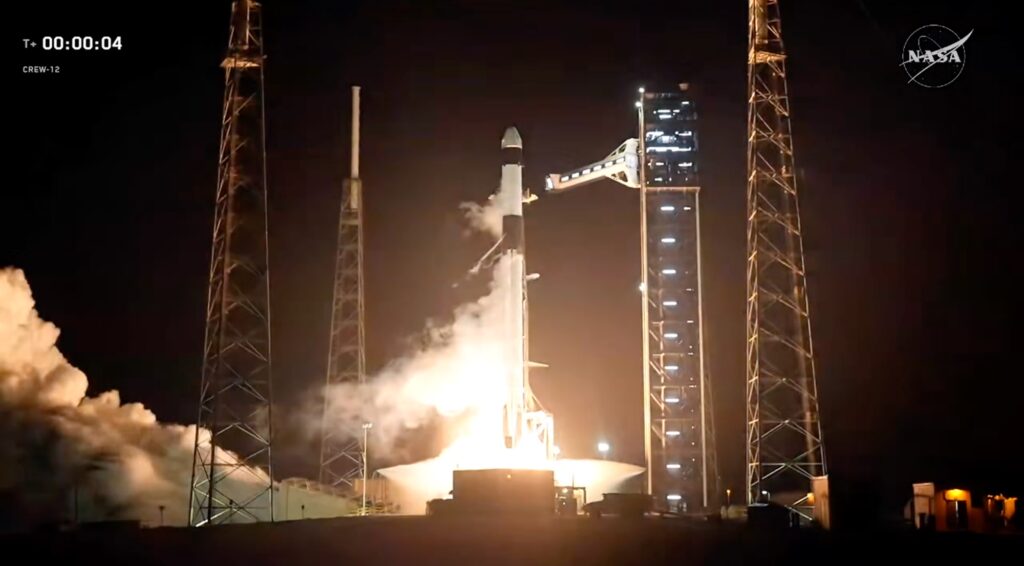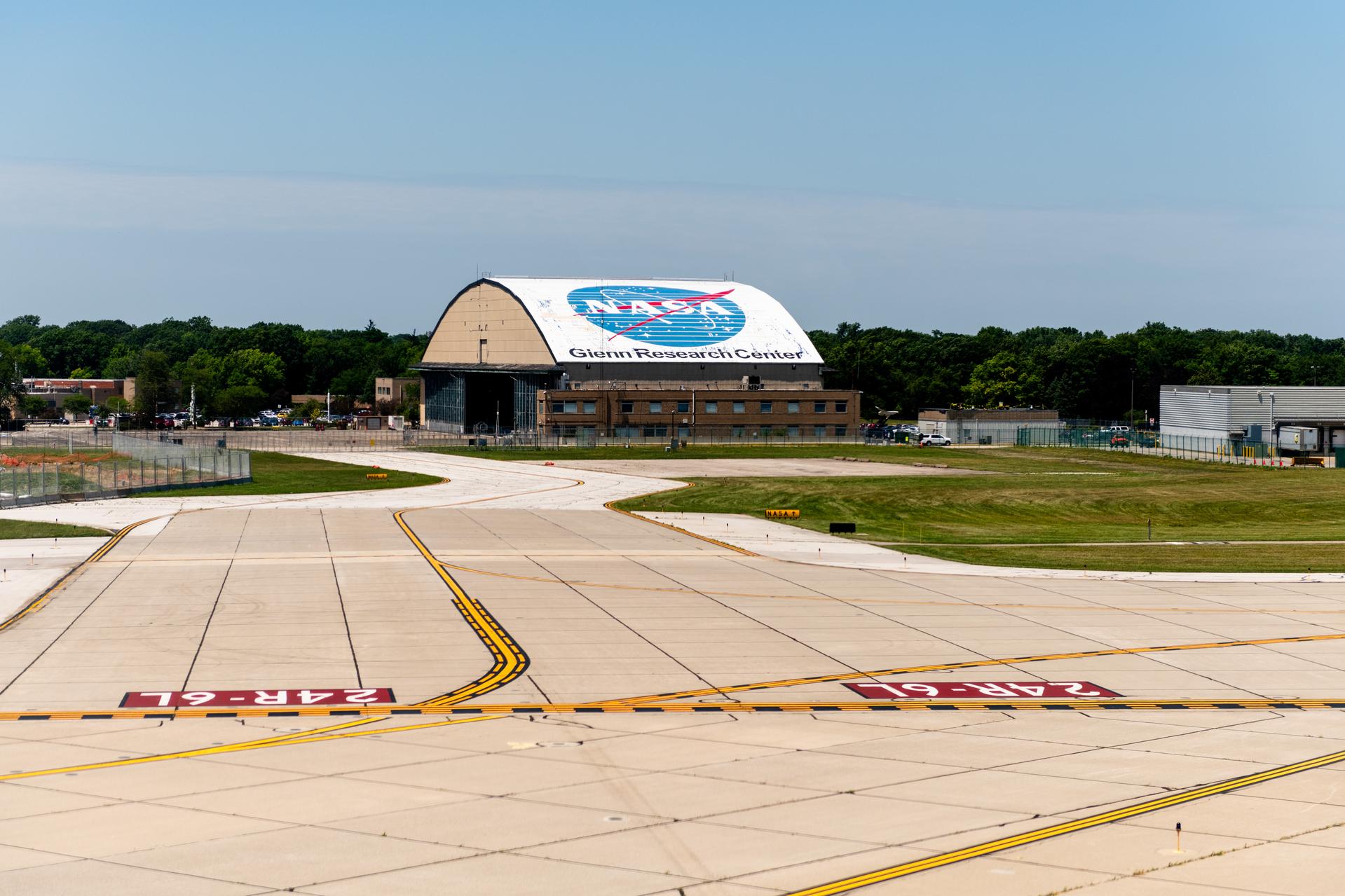Now Reading: Podcast: Understanding the SpaceX-Era Economy
-
01
Podcast: Understanding the SpaceX-Era Economy
Podcast: Understanding the SpaceX-Era Economy

In this week’s episode of Space Minds, host Mike Gruss speaks with SpaceNews Senior Staff Writer and Business Intelligence Manager Jason Rainbow about the white paper, Understanding the SpaceX-Era Economy, released from our new product brand SpaceNews Intelligence.
The conversation kicks off with a deep dive into SpaceX’s overwhelming dominance in the launch market and explores how the company’s relentless push for innovation—especially through reusability and the ambitious Starship program—is redefining the global space economy. From transforming launch economics to influencing geopolitics and reshaping communications, SpaceX’s reach extends far beyond rockets. Tune in as the hosts dissect the ripple effects of Elon Musk’s space empire and preview what’s next in this dynamic, rapidly evolving industry.
Show notes and transcript
Click here for Notes and Transcript
Time Markers
00:00 – Episode introduction
00:23 – Welcome
00:51 – Why is SpaceX at the crux of every conversation?
02:55 – The ripple effect
04:46 – How did they dominate so fast?
07:45 – The success of reusability
09:46 – Responding to SpaceX
12:16 – The markets response
13:21 – What makes Starship unique?
16:46 – What one thing surprised you?
Transcript – Jason Rainbow Conversation
Mike Gruss – Hi everyone, and welcome back to space minds. I’m Mike Gruss, and I’m joined today by a familiar face, Jason Rainbow, who’s a senior staff writer and business intelligence manager here at SpaceNews, we just released our first report under our space news intelligence brand. It’s called Understanding the SpaceX era economy, and the first part is about launch supremacy. Jason, welcome. It seems like you can’t have a conversation about space for any length of time without talking about SpaceX in some way, and particularly, I think that that starts with launch. So what makes this moment unique for SpaceX, and why does it feel like they are at the crux of every conversation, right?
Jason Rainbow – Yeah, thank you for having me on everyone knows that SpaceX dominates the launch market, but I think few people kind of truly grasp how deep that dominance runs, how far the ripple effects reach, and what that means for for what’s coming next. You know, while most companies are, you know, rushing to catch up, the Falcon 9 SpaceX is already laying the groundwork for a far more massive launch system with with starship promising to upend the industry all over again. And you know, at Space links, we hear that all the time. We there are press releases almost every day about startups with some breakthrough technology that’s, you know, could change everything in space, which is awesome, because it wasn’t always that way.
The industry is so dynamic now, but there are no shortages of obstacles. You know, not only do you have to prove that technology, but there’s financing it, and space is crazy capital intensive. And then there’s the regulator issues, and then all those kind of areas SpaceX is kind of shown success in. So you know. Oh, and they’ve also already disrupted the market once. No one disputes that. They have a history of this. So, you know, although timelines shift, and we should we should be clear, it’s still early days with starship it’s still in development. They’ve had their fair share of setbacks, but even so, we have to take them seriously when they talk about revolutionizing the launch market again. And it’s not just about launching rockets. You know, SpaceX are restructuring the space economy that the internet. You know how wars are fought, how governments think about sovereign capabilities. So it’s a, it’s a big and important topic.
Mike Gruss – Yeah, it’s, it’s heady. And like you said, it’s not just one area. It’s not just launch or just communications. If we’re talking about Starlink, it’s what, the what the ripple effects, as you mentioned, are for all of these other areas that are part of the space community and the space economy. You know this, this paper is incredibly comprehensive. It’s, it’s a great read. But when you were working on this, what and when you were done? What are, what are some of your takeaways here? What? What you’re familiar with with SpaceX, you’re familiar with the work they’ve been doing for a decade, plus. What? What surprised you or What? What? What did you take away that maybe you didn’t expect to?
Jason Rainbow – Yeah, I think just really how entwined SpaceX is becoming with our everyday lives, and we’ll get more to this in part two, which will be about communications. But like you said, SpaceX it’s not just about rockets. It’s about those ripple effects. And SpaceX has reshaped the launch market, yes, but it’s also changed how we think about communications, which is becoming increasingly important in an increasingly digitized and connected world, but it’s also a major force in geopolitics, government procurement and even international trade. And let’s not forget, you know, Musk was, until recently, advising the White House, and that says a lot about where business ends and government begins in the SpaceX era. But yeah, I mean, at one point I was I found myself writing that SpaceX could soon launch more than 1000 rockets. Yeah, so I had to stop and double check that. But that just kind of shows how much the scale, yeah, the scale of ambition has shifted. It wasn’t too long ago that space was a slow and careful industry, and SpaceX is out there. Not. Making it more like airline travel.
Mike Gruss – Well, we, we spoke on the podcast recently with Heather Pringle from the Space Foundation, and they just came out with reports that said, you know, a rocket now is launching every 28 hours for the first six months of the year. And you know, that’s that’s an incredible change, and it’s due largely to SpaceX, and it’s just a completely different way of thinking about launch than we were doing even five years ago. And again, that’s not a giant surprise, but it is it. I think what, I think, what this report does such a nice job of doing showing where some of those ripple effects are. But before we get there, let’s, let’s start with, you know, how exactly did we get to this moment? How do we get to a place where SpaceX, you know, 20 plus years ago, it’s this underdog now all of a sudden, like we talked about, you can’t have a conversation about space without them so. So how did we go from almost nothing to dominance so quickly?
Jason Rainbow – Two words, reusability and relentlessness, relentless. They they bet early on on landing rockets, which at the time sounded wild, but they proved they proved they could do it cheaply and often, and then they just kept launching and launching and launching and now fly more than everyone else combined. And a lot of that, you know, is for their own needs. It’s for Starlink, but it’s an unmatched capability that is well placed as space becomes increasingly important for for companies and governments around the world, you know, I mean, technology is a huge part of that story, but it’s only half the equation. You know, it’s, yes, the engineering is world class, reusing rockets 24 times, building satellites by the 1000s, testing the biggest rocket ever flown. You know, that’s, that’s all real, and it’s unmatched. But what sets SpaceX apart, I think, is how they deploy that technology. You know, their operations feel more like Tesla or an airline that compared to like a traditional space agency. So they, you know, they iterate fast, and that’s important, you know, because SpaceX is this kind of Silicon Valley mindset, where they’re willing to launch, fail and improve in public, and that’s been historically uncomfortable for governments and legacy space firms. And then there’s the vision Musk’s, you know, moonshot mindset. Love it. I hate it. It gives the company permission to think in decades and megatons. You know, it’s not just about building record rockets. It’s about tackling those real big problems, like how to get to Mars, you know, that people want, really to dare tackle. So, yeah, the tech is brilliant. But the real advantage, I think, is that fusion of engineering ambition and just relentless execution, and that’s that’s harder to copy than just building a good rocket.
Mike Gruss – Right? And we’ve seen there are folks that do just want a copy. I mean, I think that’s that’s been, that’s been something that’s come up, in particularly with China, that folks have said, Hey, are they just trying to, are there companies here just trying to copy a Falcon 9, but to that point of reusability that, you know I remember, and I know you do too, like those first, those first landings that they were, you know, there was an incredible amount of skepticism. And then, like you said, to be able to launch dozens of times after with that same booster is something that really seemed unimaginable. Not that long ago. And because, in because of that, that reusability has allowed SpaceX to really drive down its cost, which makes it an, in, you know, an incredibly competitive player in in almost every market. And the report touches on that in part, right?
Jason Rainbow – Yeah, they’ve dramatically reduced the cost of a Falcon 9 because you don’t have to Bill and even each time so. But I think, and I think analysts like Novaspace, they point out that while their internal costs are likely just a fraction of what they used to be there, the price that they charge the market is relatively the same. So they got a lot of cash there over the pocket and to spend on those big bets like starship like building better and bigger Starlink. You know, they’re certainly not strapped for cash. Elon Musk said that, you know that in the anymore cash SpaceX, even though they’re reportedly currently in a in a funding round. Now you know, billion dollar funding round, valuing the company at $400 billion or something. So you know, why not? Why not? If you say that’s another thing that SpaceX has going for them is just Elon Musk is incredibly good at raising money for SpaceX and his other ventures. So why not? If it’s easy to raise money.
Mike Gruss – So I think, you know, the way I’ve thought about competition or customers here is, you know, I guess there’s, there’s kind of three main groups of customers, there’s, there’s military, there’s the US government, and then there’s, there’s foreign governments. And maybe that’s just a sign of my own thinking there. But, but how are those groups? You know, when you were working on this report, what did you find about how they’re responding? Because it feels like each is a little bit different, in that they all have different constituents they need to serve in order to have, you know, viable access to space.
Jason Rainbow – Right? Yeah. I mean, in the near term, no one is catching up to SpaceX and launch, at least not in, you know, volume and cadence and then cost and that kind of thing. You know, in 2024 they launched, I think I mentioned, like, 134 times more than the rest of the world combined. And in 2025 they, you know, they’re aiming for 180 and that scale is just hard to match without years of infrastructure funding and flight heritage. But you know, and it isn’t just about rockets, I should say also, it’s the model. And the SpaceX vertically integrates everything they build, the engines that the satellites, the user channels, and that tight feedback loop lets them move faster and cheaper than competitors who, you know, rely on on multiple suppliers. But that said, there are, there are openings for others.
You know, one is niche specialization, so companies like Rocket Lab, they’re not trying to beat SpaceX on volume. They’re offering agility and custom orbits, and that appeals to certain startups and national customers who want more control over schedule and orbits than ride share offers. And then another one is regional and I suppose, strategic autonomy, Europe, Japan, India. They don’t want to rely on just commercial options. They want their own sovereign launch access, even if it’s less efficient, and that creates room for Ariane 6 and newer players. But even in the US, no one really wants, no wants a monopoly. You know, SpaceX is faster and cheaper, yeah, but it also means that NASA and the Pentagon would risk dependence on a single provider, you know, it’s like, like your family isn’t controlled, or the the delivery routes, that that’s great until it’s not until cent goes wrong and then right, yeah, so you want to have options.
Mike Gruss – Right, and so what does that mean, then, for some of these companies, or that that see them, that that see themselves competing or having, you know, rockets of their own to launch in the next couple of years, if not sooner. What? What? What has been the market’s response to them?
Jason Rainbow – Well, it’s also a question demand. I mean, do you believe that this kind of uptick, this surge that we’re seeing in constellations and satellites, is that going to continue seems to be that way. I mean, you mentioned China. They’ve got two mega constellations there. They’re actively underway. I think each one is around about 14,000 satellites. Each one of them is essentially a Starlink China. There are a lot of SpaceX can launch very fast and with starship that would just be put into a different gear, but there’s also a lot of satellites that need launching. And, you know, with the geopolitical shifts we’re seeing, it doesn’t really make sense for to put all your eggs in one basket. Even, is the US with the most successful launch company to date?
Mike Gruss – Yeah. And part of that is, you know, part of that has to do with Musk himself, right, and that they were, I think there are concerns that would, would SpaceX provide launch for certain for certain companies, or would they be on would would it be, would they be reliant on only one company? What happens if something goes wrong and there it’s out of commission for a while. We haven’t seen that. But, you know, I think there are a lot of concerns there, particularly like you mentioned from Europe, and that sounds like that to me. Does not sound like a temporary shift. That sounds like a fundamental shift, at least for the next couple of years. And I think there’s also a sense of you can help me with the exact number here, but what 12 or 13 launches last year on SpaceX for European government satellites? And that, I think there’s a bit of regrets, probably too strong, so is buyer’s remorse, but just some doubts whether or not there would have been other opportunities now. And so I think that also colors any discussion of where SpaceX is right now. But you know, you touched on on starship, and I want to get back to that, because that is. That seems poised right now to to have another revolution within the industry, or change how we are thinking about launch right now. So, so what makes starship so unique, and why? Why is that a potentially such a game changer for the space community that’s that’s still adjusting, as we just talked about, to Falcon 9.
Jason Rainbow – Yeah, so starship is basically a flying freight train. You know, if it works, it could carry far more than 100 metric tons per launch. And do often in that that’s not just shipping people in cargo to Mars, which is one of the Musk’s long held big ambitions. It means cheaper satellites, fast logistics, and maybe even opening up industries like manufacturing on orbit, and it fundamentally will change who and what can get into space. Many companies already, we’re seeing them deploy kind of larger and larger, relatively disposable satellites in low Earth orbit, because it’s just getting cheaper to launch and access to the availability of launch options is increasing. So why not have big, these big, bigger satellites? Starship is going to put that in a different gear. And I wrote recently about how something like starship could open up the in emerging markets being talked about for a while, just the logistics haven’t really been figured out, but just kind of having solar power generators in space, huge, kilometer wide structures that would harness the energy from the sun and then beam it back down to earth, and something like starship opens that as a real possibility. It makes the business case, closes it essentially. If it all works out so it could open up new industries, you can launch constellations of satellites in one single launch. It’s just, it’s kind of mind blowing to think about the possibilities. If this works like Elon says he will.
Mike Gruss – Yeah, and there’s been some, you know, hiccups, to say the least, the last couple of runs. But you know, as you talked about, repetition is maybe the thing that has has set SpaceX apart, and maybe the single trait that has allowed it to iterate as as fast as it, as it has, just because it’s it’s had the data, it’s had the opportunities to see the responses to what’s changing and and how they can perform, perform better. We’re just, we’re just about out of time here. But I did want to ask, you know what? What’s one thing that you know you worked, you worked for a while on this report, like I mentioned, it’s very comprehensive, but what? What was this? Maybe one thing that surprised you, or a tidbit or a fact that that came out of this that you didn’t know before, or maybe you didn’t realize the extent to which was happening before?
Jason Rainbow – Well, as I was putting together, I kind of watched them. Elon Musk did a presentation in Texas a few months ago. We just laid out big ambitions. All that’s in the report, just the scale of it. I mean, I knew, I knew, you know, SpaceX is not company that would like that stand still. Yes, it’s a front runner in Watch now, but just how, how much they’re looking to extend that, lead with with starship and frequent starship launches. And, like I said, that’s that’s opening up a space economy that we’re only just starting to now be able to think about in real terms. Now, just surprising, just the sheer scale of it, and also just how, as I was, kind of, you know, and just say thanks to the space news team for having so much material already in the archives, decades worth for me to draw on. You know, able to connect dots where I could just, just how SpaceX and what they’re doing just touches everybody’s lives. You know, it’s a weird, it’s an exciting and strange time to be covering space, you know, because beyond rockets. It’s about the economy, politics, personalities, who gets a seat at the table for the next era of, you know, space exploration. It’s just surprising, just how, how SpaceX touches so many people’s lives, and everyone is waiting to see what comes next. So, yeah, yeah.
Mike Gruss – And I think, I think, I think we’re going to hear even more about that for the second part of this report, which you, which we mentioned, focuses on communication, but, but you nailed it. This is a super interesting time. It’s a lot of fun. And Jason, thanks so much for joining us. That report, like I mentioned, it’s called Understanding the SpaceX-Era Economy. The first part is about launch supremacy that is available on space news.com thanks so much for joining us, and we look forward to seeing you back here soon. Thanks again.
About Space Minds
Space Minds is a new audio and video podcast from SpaceNews that focuses on the inspiring leaders, technologies and exciting opportunities in space.
The weekly podcast features compelling interviews with scientists, founders and experts who love to talk about space, covers the news that has enthusiasts daydreaming, and engages with listeners. Join David Ariosto, Mike Gruss and journalists from the SpaceNews team for new episodes every Thursday.
Watch a new episode every Thursday on SpaceNews.com and on our YouTube, Spotify and Apple channels.
Be the first to know when new episodes drop! Enter your email, and we’ll make sure you get exclusive access to each episode as soon as it goes live!
Space Minds Podcast
“*” indicates required fields
Note: By registering, you consent to receive communications from SpaceNews and our partners.
Stay Informed With the Latest & Most Important News
Previous Post
Next Post
-
 01Two Black Holes Observed Circling Each Other for the First Time
01Two Black Holes Observed Circling Each Other for the First Time -
 02From Polymerization-Enabled Folding and Assembly to Chemical Evolution: Key Processes for Emergence of Functional Polymers in the Origin of Life
02From Polymerization-Enabled Folding and Assembly to Chemical Evolution: Key Processes for Emergence of Functional Polymers in the Origin of Life -
 03Φsat-2 begins science phase for AI Earth images
03Φsat-2 begins science phase for AI Earth images -
 04Hurricane forecasters are losing 3 key satellites ahead of peak storm season − a meteorologist explains why it matters
04Hurricane forecasters are losing 3 key satellites ahead of peak storm season − a meteorologist explains why it matters -
 05Thermodynamic Constraints On The Citric Acid Cycle And Related Reactions In Ocean World Interiors
05Thermodynamic Constraints On The Citric Acid Cycle And Related Reactions In Ocean World Interiors -
 06Binary star systems are complex astronomical objects − a new AI approach could pin down their properties quickly
06Binary star systems are complex astronomical objects − a new AI approach could pin down their properties quickly -
 07Worlds Next Door: A Candidate Giant Planet Imaged in the Habitable Zone of α Cen A. I. Observations, Orbital and Physical Properties, and Exozodi Upper Limits
07Worlds Next Door: A Candidate Giant Planet Imaged in the Habitable Zone of α Cen A. I. Observations, Orbital and Physical Properties, and Exozodi Upper Limits





















